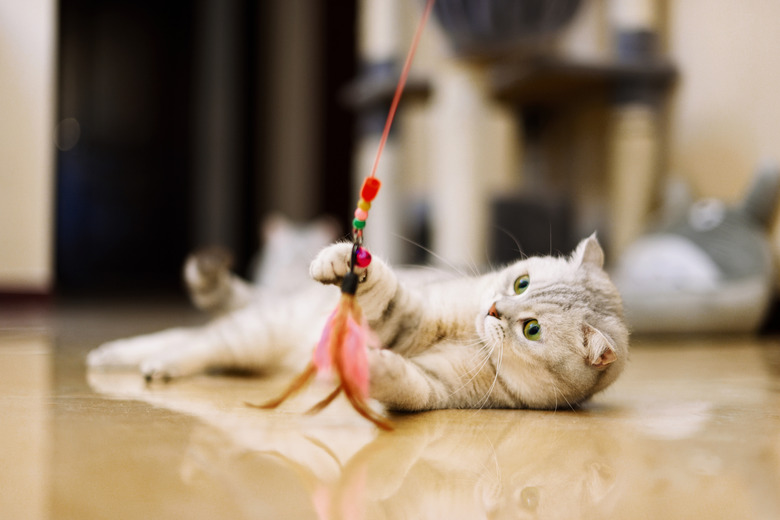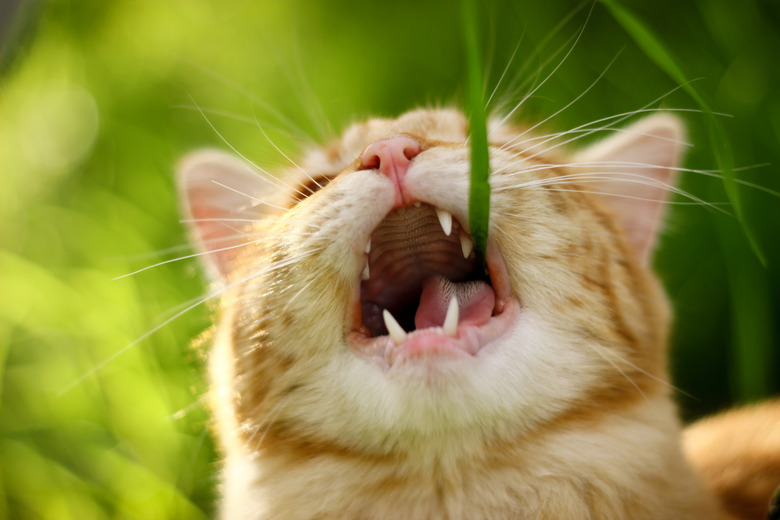What To Give Your Teething Cat To Chew
Despite their small size, teething kittens can damage your furniture, clothes, and shoes with their chewing. Your kitten might even decide your fingers and toes are fair game. It's a good idea to provide your kitten with appropriate toys and items to chew to help prevent damage to yourself and your home — and protect your cat from chewing and swallowing things that might harm her.
The good news is your cats teething won't last. Your kitten will begin teething at approximately 3 1/2 to 4 months of age. Teething continues until all of her adult teeth have grown in at approximately 6 or 7 months of age and should end by 8 months to a year old. Adult cats have 30 permanent teeth.
Kitten teething process
Kitten teething process
During the teething process, your kitten's adult teeth begin developing in the gums and placing pressure on the baby teeth. Eventually, the roots of the baby teeth disappear and the adult teeth push the kitten teeth out. Usually, your kitten swallows the baby teeth, but you might occasionally see a baby tooth on the floor or in her dish.
Don't be alarmed if your kitten even drools occasionally because this is normal. Signs that your kitten is teething include chewing, breath odor, drooling, irritability, and being reluctant to eat.
Toys for cats teething
Toys for cats teething
There are many chew toys to consider for your teething kitten. When selecting a toy, make sure it is not something she can swallow or choke on. Avoid hard toys as these might damage her teeth. Some toys are designed to be chilled in the refrigerator or freezer to provide relief for your kitten's sore gums. As an alternative, you can freeze a wet wash cloth and give it to your kitten.
Wet wash clothes are simply homemade kitten teething toys, and another is tightly braiding together strips of fleece fabric. Fleece doesn't fray and when tightly wound, it's like a soft, chewable toy that doesn't need stuffing.
Although teaser toys, such as strings or feathers, are not suitable for your kitten to chew on, using them to get your kitten moving can help distract her from teething and drain excess energy. This reduces the chances of her chewing on inappropriate items in your home.
Grasses for cats teething
Grasses for cats teething
Your kitten also might enjoy chewing on grass in a pot. Select a grass that is safe for cats, such as barley, oats, rye, wheat, or a combination. You can purchase grass, or seeds to grow your own, at many pet supply stores. Note that growing your own lasts a bit longer; cat grass in pots is good for about one week. However, make sure you are growing (or buying) cat grass specifically — not all plants and grasses are safe for kittens or cats teething.
In addition to providing appropriate chew toys, help keep your kitten comfortable while she is teething by feeding soft food. However, do not try to brush her teeth. Doing so would be painful for your kitten and make dental care a negative experience.

